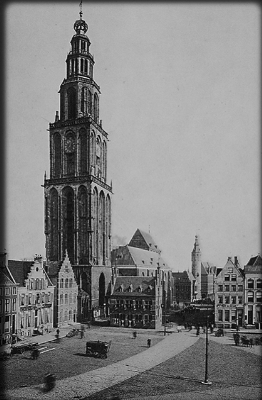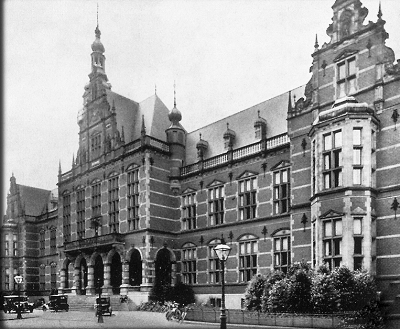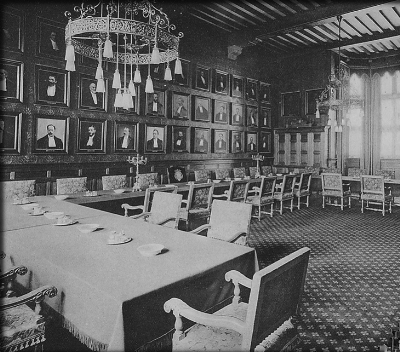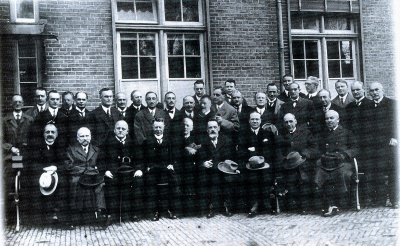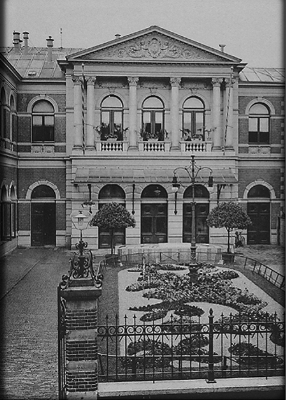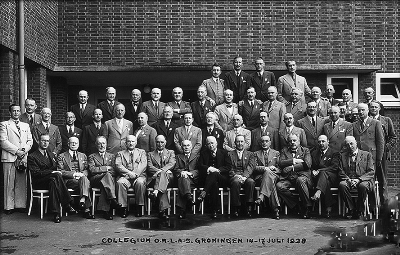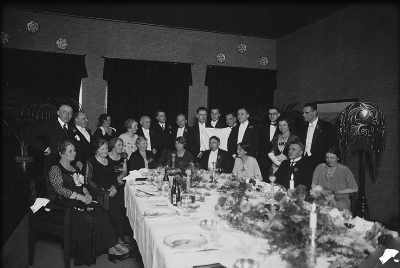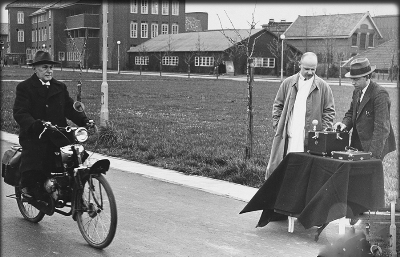In June 1926 Charles Emile Benjamins, together with his friend and younger colleague Dr P.H.A De Kleyn from Utrecht, developed the idea to start an international organization or forum where ORL specialists from different countries could meet and discuss their research findings with their peers.
The following story which Christina Catharina told her grandchildren, explains the reasons for Charles Emile’s initiative. Several years after the First World War his friend Adriaan De Kleyn made an extensive study tour to several European ORL Centers and afterwards discussed with Charles Emile how he had observed that their mutual friends and colleagues from Germany and France and other countries were not on speaking terms with each other any more.
In particular their German and Austrian friends were completely ignored by their colleagues from France, Belgium and the other allied countries. This was a political issue, caused by the First World War, and completely outside the responsibilities of individuals. Saddened by this account and remembering that before 1914 they had always had very intensive contact with ORL colleagues from both Germany and France they contemplated how to change this situation. Actually, Charles Emile had obtained his main training in ORL diseases in France and in Germany. He terribly missed these international contacts both professionally and personally. Gradually Charles Emile and his friend Adriaan developed the idea that if they could only bring again together their German & French friends in an international meeting in neutral surroundings it might be possible to overcome this sad situation. Particularly, if such a meeting was to focus purely on research issues, while avoiding political issues, to be held in a neutral country together with colleagues from other neutral countries, such as The Netherlands, Switzerland or in the Scandinavian countries.
With this idea in mind, Charles Emile and his friend Adrian De Kleyn invited on June 1926 some sixty ORL friends from fourteen European countries, whom they knew were interested in ORL research and would possibly react positively. On purpose, political issues were not mentioned. Their invitation letter mentioned:
“that at meetings of the Oto-rhino-laryngological societies and at international congresses the subjects dealt with are of a widely divergent character. Purely scientific subjects often do not receive sufficient attention, chiefly on account of the following reasons:
- On account of the great number of papers read whereby the attention is distracted and too short a time is allowed for each speaker.
- On account of the presence of a number of members whose interest in purely scientific subjects is only slight.
We have therefore decided to invite a number of colleagues whom we know to take an interest in scientific problems to form an international Collegium Oto-Rhino- Laryngologicum“.
This was followed by a brief description of the set up and rules of the Organization. The letter concluded with: “We should highly appreciate it, if you agree to join this Collegium and would communicate your intention to us.”
Fortunately most colleagues reacted very positively, even though some mentioned possible political conflicts. Very wisely Charles Emile and Adriaan De Kleyn completely ignored these concerns. In view of the overall positive reactions he and his friend De Kleyn therefore invited only one month after the initial letter on 27 July 1926, all who had reacted positively to the foundation meeting of ORLAS in Groningen, the Netherlands in October 1926.
Following this, on 9 October 1926 the foundation meeting of ORLAS was held in his clinic in Groningen, the Netherlands in which meeting thirty four colleagues from thirteen different European countries participated. Image 142: Foundation meeting ORLAS 9 October 1926. Charles Emile was selected as the first Secretary General of ORLAS and was its organizer, its driving force and main facilitator from 1926 till his death in 1940. Prof Zwaardemaker, the Nestor of the Dutch ORL community, accepted the invitation to become the president of the foundation meeting.
Thereafter every year ORLAS organized a meeting in a different European country:
| Groningen 1926 | Madrid 1932 |
| Zürich 1927 | Prague 1933 |
| Copenhagen 1928 | Stockholm 1934 |
| London 1929 | Budapest 1935 |
| Frankfurt 1930 | Venice 1937 |
| Bordeaux 1931 | Groningen 1938 |
The tenth ORLAS meeting was again held in Groningen. Due to the Second World War there were no meetings between 1939 and 1947, in which latter year the first meeting after the war was organized in Brussels, Belgium.
Today ORLAS is still an important forum, where ORL specialists from all over the world meet to discuss their research findings. In August 2002 ORLAS celebrated its 75th anniversary during a special meeting in the Netherlands. Most of the 434 (202 regular) members from 42 countries joined the celebrations in the Netherlands and the opening ceremony was attended by her Majesty Queen Beatrix from the Netherlands, indicating the importance of ORLAS.
In 2004, the Dutch Collegium members who organized the 2002 ORLAS meeting at Noordwijk aan Zee decided to establish a ‘Benjamins prize’. This prize is to be awarded to a young ORLAS member or other young reseacher, preferably under the age of 40 but not older than 45, for a high-quality study in the field of Otorhinolaryngology. The jury of the prize consists of the President, the President-elect and the General Secretary of the Executive Committee. The Benjamins prize was for the first time awarded to Prof. Christian Matthias from Münich at the ORLAS meeting in Moscow in 2006.
For a more detailed account of ORLAS, the reader is referred to the special monograph produced for the occasion of the celebration of 75 year ORLAS:
Vivat Collegium Oto-Rhino-Laryngologicum Amicitiae Sacrum 1926 -2001 written by Egbert H. Huizing and Paul van den Broek, two ORL professors who were intimately involved in ORLAS.
